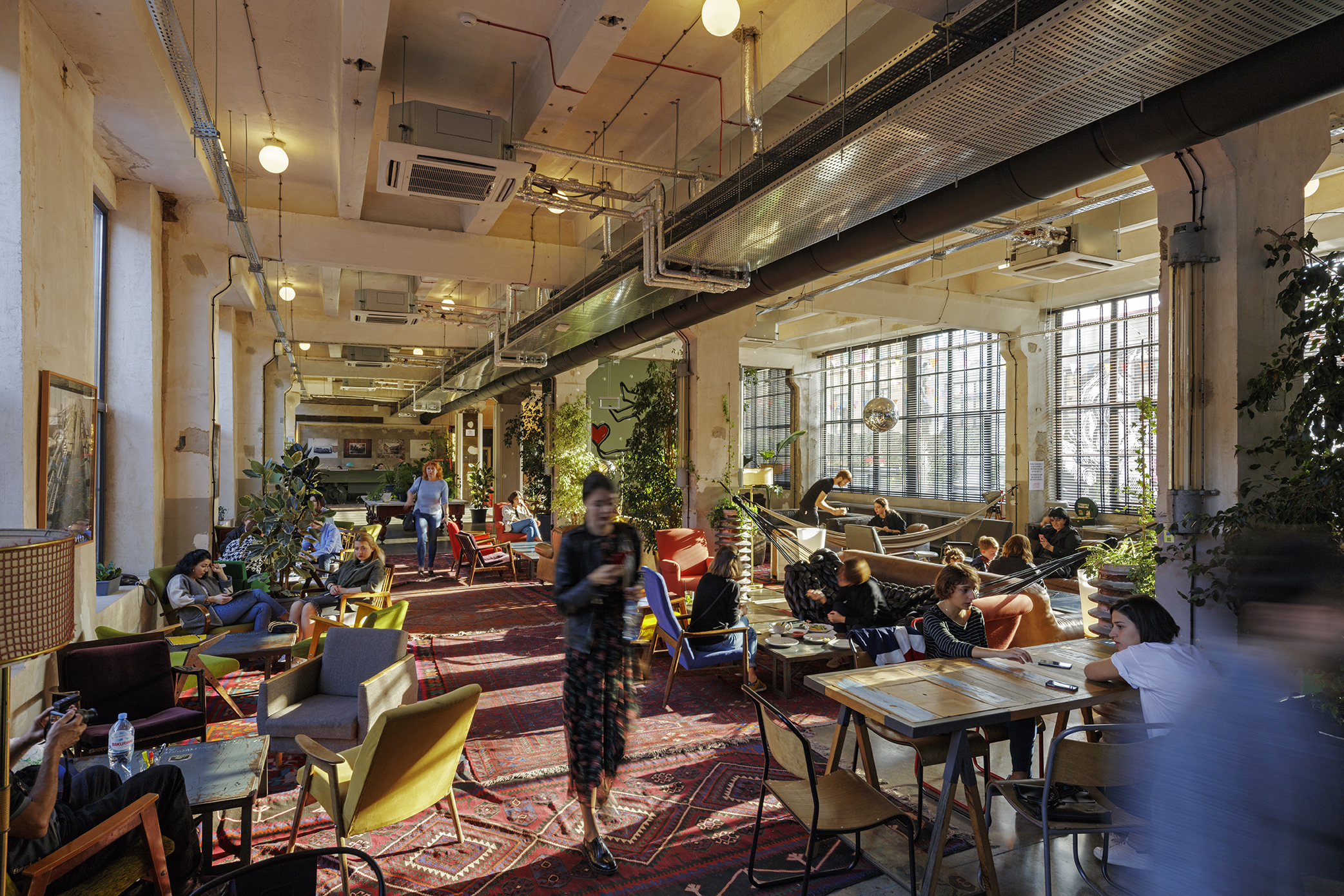News
Manchester, United Kingdom — 22-25 September 2009WYSE Archives
![]()
Seven predictions for the youth travel market in 2019
Did GDPR kill bloggers? Will digital nomads take work/life/travel to a new level soon? Will hostels really ever take off in the US? We asked a few pundits of the youth travel industry about seven travel trends for the youth market that could sink or swim in 2019 and here’s what they said.
1 – Experiential learning will really take off
“Travel is uniquely positioned to offer experiential learning. Travellers don’t just want the nuts and bolts. They are less concerned with the where, and more with how they are going to learn new things – whether it’s cooking or yoga. Experiential learning is already big and travel is a great example of this. We just don’t always realise it.” Sarah Clark, Intrepid Group
“The slogan ‘travel is the only thing that you buy that makes you richer’ has been bandied about for many years. There are many things that travel teaches you that you simply cannot learn in the classroom. I’ve been preaching that since I took my gap year in 2008-09 after graduating from Leeds University law school. Whether experiential learning has always been around and kept insular within the travel community, or whether it is now starting to make national waves, remains to be seen.” Nick Steiert, Invasion

“‘Experiential’ seems to be the word of the year! The concept, though far from new, is being rejuvenated. I see a lot of talk about online companies pivoting to provide their customers with experiences; I think it ties in with the post-Facebook landscape. For the last decade or so it’s been very popular to talk about the alienating impact of social media and “living online,” so a backlash was bound to occur. I think that’s what the focus on experience comes down to: a desire for the human connection that online communities struggle to provide.” Walker Pappin, Vagaband
“As experience continues to be the key to travel, curating the destination experience will become a new function for DMOs and travel suppliers. This is also evident in the way that major companies are trying to gain capacity in this area, producing more integration in a previously very fragmented marketplace. This produces the danger that destinations will increasingly begin to look and feel the same, so creative curation and experience innovation will become increasingly important.” Prof. Greg Richards, WYSE Travel Confederation
2 – Consumer awareness of responsible and ethical tourism choices will increase
“Yes, this next generation of traveller is willing to make ethical choices, but not always at a cost to them.” Pete Edwards, Samesun
“Awareness of responsible brands has been on the rise for the last decade, and consumers are increasingly choosing to work with or buy from organisations that show they are accelerating in this space. People want to know that their money is in exchange for positive change and to support ethical tourism choices. It is my hope that the growth of initiatives like B Corp that provide profit for purpose certification will help steer consumers in the right direction.” Sarah Clark, Intrepid Group

“Absolutely. It’s a long-term journey though, and those companies who are not actively on board in aligning their actions, operations, investment and product, in addition to their message, will get left behind. Look at the conversation around animal welfare in the last five years. Responsible travel companies reacted to that – supporting elephant sanctuaries rather than riding them… attending music festivals rather than bull running festivals. The responsibility sits firmly with the tour operators and travel agents to shape those choices.” Simon Grout, Busabout
“Strongly agree. At World Nomads we have long promoted ethical and responsible travel, but we have seen a recent increase in the number of people accessing our content. We often hear from travellers and from our affiliate partners that the reason they chose World Nomads is because of our stance on ethical travel.” Nick Pound, World Nomads
“Socially conscious travel and eco-tourism are ways for young people to give their travels a sense of significance. With more and more employers and universities looking at gap-year activities as valid forms of experience, and more young people seeing travel as an educational experience rather than a purely recreational one, I would agree that this type of awareness is going to be a key driver in youth travel planning.” Walker Pappin, Vagaband
3 – Bloggers and influencer marketing are on the decline
“Honestly, I hope we see a sharp decline in influencer-led marketing. I think people have gotten wise to the fact that it’s no different from conventional advertising; you can buy and sell someone’s opinion of your brand just like you can buy space on a billboard. Younger consumers are experts at spotting inauthentic enthusiasm, so it wouldn’t surprise me if disingenuous influencers started losing a lot of the leverage that made them so valuable in the first place. I think the key here is authenticity: a popular blogger with a legitimate passion for a product or service will still drive traffic and add value, but I think there’s a certain cynicism that surrounds influencer-marketing that’s really come to a head over the last 12 months.” Walker Pappin, Vagaband

“Agreed. We now only work with very important influencers or very local ones.” Etienne Matichard, JO&JOE
“Although the general rule of brand marketing is to be in front of as many of the right people, as many times as possible, it is becoming increasingly difficult to use influencers to achieve this, especially for travel brands where a destination is the key focus and not the brand itself. Consumers are complacent with influencer posts, are less engaged in their content and now understand that influencers are paid to advertise brands instead an honest recommendation.” Sarah Clark, Intrepid Group
“Agree and disagree. Consumers are more aware that the posts influencers publish may be sponsored – advertising in other words. There is also an increasing distrust of advertising. The key to success for bloggers and influencers is authenticity; if the things they promote, the places they travel and the brands they use are genuinely a part of their travel experience. Consumers are being more discreet with the bloggers they choose to follow, and a shared set of values is the most important factor.” Nick Pound, World Nomads
“When influencers are sponsored by brands they are not particularly loyal to, their fans question whether their opinion is genuine or not, making this form of marketing an unreliable platform for brands. Influencers and brands both need to be transparent when it comes to sponsored content. There is a right way to do Influencer marketing and it’s about aligning with partners who are a good fit and share the same values. With that said, there is certainly a shift towards customers looking for genuine content and reviews from real passengers over influencers supporting products. Over the last few years we have launched campaigns searching for new, young, talented content creators who love Busabout, without the large social media following or ‘influence’, but with the right attitude and skills. The results have been genuine travellers creating original and authentic content. So, a shift rather than a decline we think.” Simon Grout, Busabout
“There is a lot of noise coming out in the press that bloggers and influencers have fake followers and to be wary of utilising their services. So, there has been a bit of backlash towards bloggers recently. That being said, it’s important for companies to do their due diligence before working with any potential supplier and bloggers will always be a great way for companies to reach their targeted audiences.” Nick Steiert, Invasion
“Yes, I agree. There’s no way to really validate any sort of investment here.” Pete Edwards, Samesun
“We we’ll see a maturing of the ‘influencer industry’ over the coming year. As with any disruptive marketing tactic, brands will slowly figure out how to make it an attributable part of the marketing mix. A decline in volume maybe, but an increase in customer value.” Fredrick Elliott, StudentUniverse
4 – New festival formats like winter snow sports or cruises will get more attention
“Festival culture is an interesting field to be looking at. Behemoths like LiveNation and Festival Republic have commodified and homogenised a lot of the big festivals around the world… and every time we see an industry become homogenous, a resistance movement is not far behind it. The festival industry seems to be diversifying. While Coachella and Glastonbury aren’t going anywhere, smaller, new festivals are cropping up every year. Rather than trying to compete for big-name headliners, these disruptors (E.G Meadow in the Mountains, Virgo, or The Tower) are investing in providing a sense of community for smaller crowds. This shift towards providing a diverse range of workshops and activities as well as lesser-known, up-and-coming musical talent is revitalising an industry that was at risk of becoming a stagnant monopoly. Genre-specific festivals are feeling this keenly. It’s pretty clear that the future of festivals lies in diversity and new experiences, not the flashy delivery of the tunes that already populate your Spotify.” Walker Pappin, Vagaband

“We’ve seen an emergence of much more niche touring options, which cater to a demographic who value unique experiences over the ‘same old tourist traps’ and we certainly expect festivals will follow suit, especially festivals in more unique locations offering something for the Instagram generation.” Fredrick Elliott, StudentUniverse
“Although we don’t have properties that apply to these in particular, we are definitely working to develop new festival packages for our properties.” Etienne Matichard, JO&JOE
“Agree. World Nomads has seen great success with content that caters to travellers seeking out festivals of all types. Surveys of our own customers show that the #1 activity that motivates them to travel is culture, so not only visiting galleries, but also attending arts events and festivals of all kinds – we call them ‘culture vultures’.” Nick Pound, World Nomads
“Definitely. With a focus on health and wellbeing, more active travel options like winter snow sports will start to rise. It’s all about collecting unique, irreplaceable (and Insta-friendly) experiences – we’ve certainly seen this in the rise of popularity in electronic music festivals over the last few years such as Tomorrowland and Ultra. In terms of pure experience – the music, line-ups, production, atmosphere and whole world they create is next level. Our guests often plan their whole Euro-trip around it. Whilst small boat cruising and island hopping has always been big with our young travellers across the Mediterranean, the larger river and ocean cruising industry, traditionally a mainstay of the established baby boomer and family-friendly brands, is certainly shifting to embrace millennial travellers and experiences too. U by Uniworld for example – a whole new concept of river cruising. It’s only going to get bigger.” Simon Grout, Busabout
5 – There will be more co-working and co-living thanks to digital nomads
“Absolutely there is a digital revolution taking place! 100 years ago, it was the industrial revolution, which was followed by the technological revolution, which then led to the internet revolution and now we are seeing the rise of a digital revolution, which, because of the way digital nomads act and think, is also leading to the rise of co-working and co-living initiatives.” Nick Steiert, Invasion
“Blending will increase, both within the youth travel sector, and between youth travel and ‘everyday life’. For example, co-working is morphing into co-living, so accommodation is becoming an add-on to the workspace. People are taking their work and study with them on the road, so it becomes increasingly difficult to tell the difference between travelling, staying and living.” Prof. Greg Richards, WYSE Travel Confederation

“I hear this is a trend, but I can hardly see it.” Etienne Matichard, JO&JOE
“Agree. We see increasing demand for content on location-independent living and we are planning on creating more content in that vertical. We expect another boom in co-working when global roaming charges for mobile (cell) phones are eliminated. There’s no technical reason for roaming charges to exist, the cost of providing the service to visitors is miniscule, the charges are simply a money-making exercise. The market is ripe for disruption from a provider who can create a new model.” Nick Pound, World Nomads
6 – Hostels will take over the USA and Canada
“We hope so. That would be a fabulous development for youth travel in the USA.” Nick Pound, World Nomads
“Totally. We are trying to open in these two destinations.” Etienne Matichard, JO&JOE
“No. Prohibitive regional laws and high real estate costs will continue to make it difficult for new hostels to open. This doesn’t mean I think that independent hostels are at risk; I think they will always have a place in the market. Some cities where hostels are needed though, like Toronto, San Francisco and New York, will continue to be difficult for anyone to open up in.” Pete Edwards, Samesun

7 – Consumers will be more sceptical of Facebook, Google, advertising and data privacy
“All social media platforms undergo changes. Facebook itself acknowledges its success has led to problems with the relevance of a user’s news feed, but that doesn’t mean people leave social media. They simply move to a new platform. It’s up to the travel industry and travel brands to monitor these changes and adapt.” Nick Pound, World Nomads
“Google continues to be tricky as the big OTA budgets push us further down the list. Facebook is becoming more of a messaging tool and is not really a marketing tool anymore, so I agree; it’s more for brand awareness. Instagram is now a more popular tool.” Pete Edwards, Samesun

“GDPR has certainly created a very valuable conversation, however, I don’t think it comes as any surprise to the millennial generation. They understand how the internet works and the part that targeted advertising plays in using services for ‘free’. On the whole it probably hasn’t changed their digital habits, however, the transparency in knowing and controlling how data is shared has been very important.” Simon Grout, Busabout
“One of the trends that we’ve seen emerge over the last two years is an increase amongst generation Z in socially conscious companies; they’re more likely to be drawn to products and services that they see as having a conscience… and Facebook is not perceived as having a conscience! Younger generations are departing the service in droves and privacy concerns are one of the driving factors. Recent revelations about the Facebook data-for-sale model have transformed its perception. It’s not a fun, free and friendly way to keep up with your mates anymore; it’s a ravenous and underhanded tool for the exploitation of sensitive information. We foresee people gravitating more towards more niche online communities that place focus on privacy and transparency.” Walker Pappin, Vagaband
“We now only use Facebook for events and Google for SEO, but advertising is still important for us.” Etienne Matichard, JO&JOE
“After the introduction of GDPR there we noticed a significant drop in the number of subscribers, but we have climbed back above the million mark and are well on the way to regaining the position we held pre-GDPR. In fact, we anticipate having a larger database than before, primarily because the changes have increased trust around privacy. People are more willing to part with their contact information knowing it will be properly guarded.” Nick Pound, World Nomads
Become a member of WYSE Travel Confederation and get access to:
Research
- Market intelligence
- Bespoke reports
- Primary data
Events
- Event discounts
- 200+ buyers
- Industry leaders
Members
- 600 members
- 500 organisations
- 120 countries
News
- Industry highlights
- Member interviews
- Brand exposure
